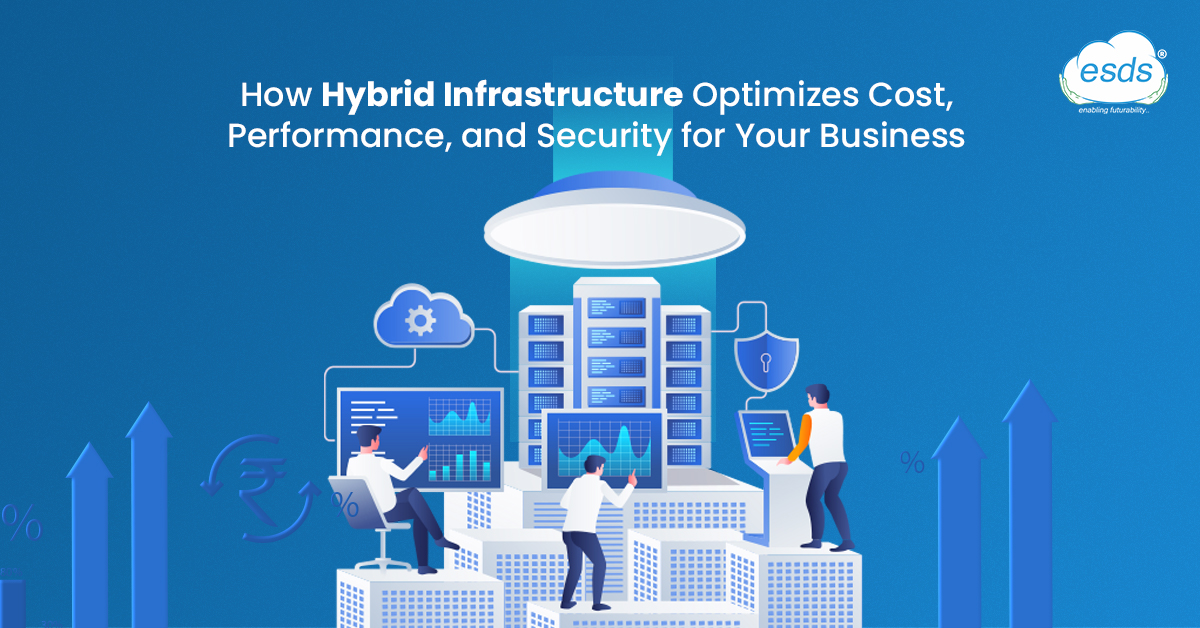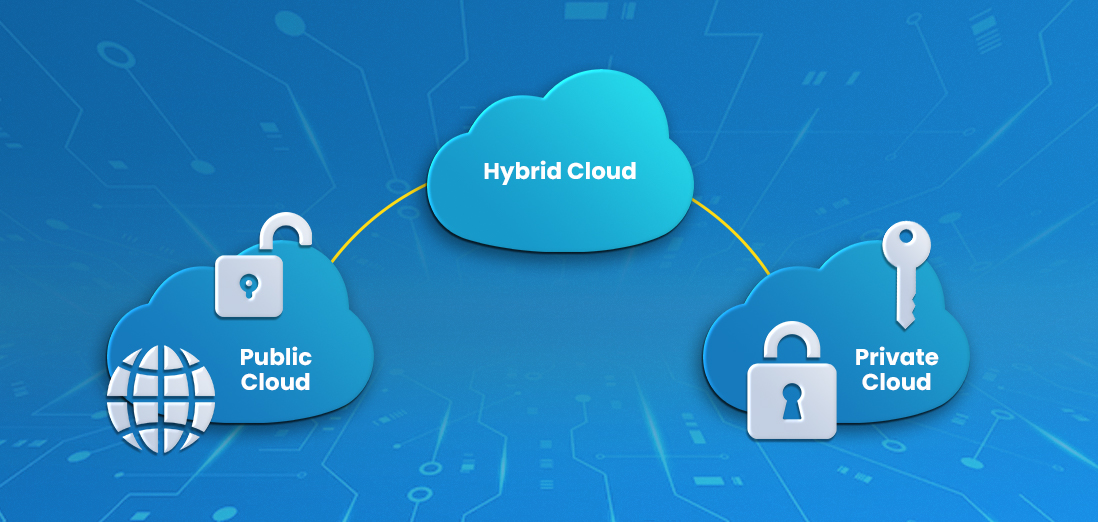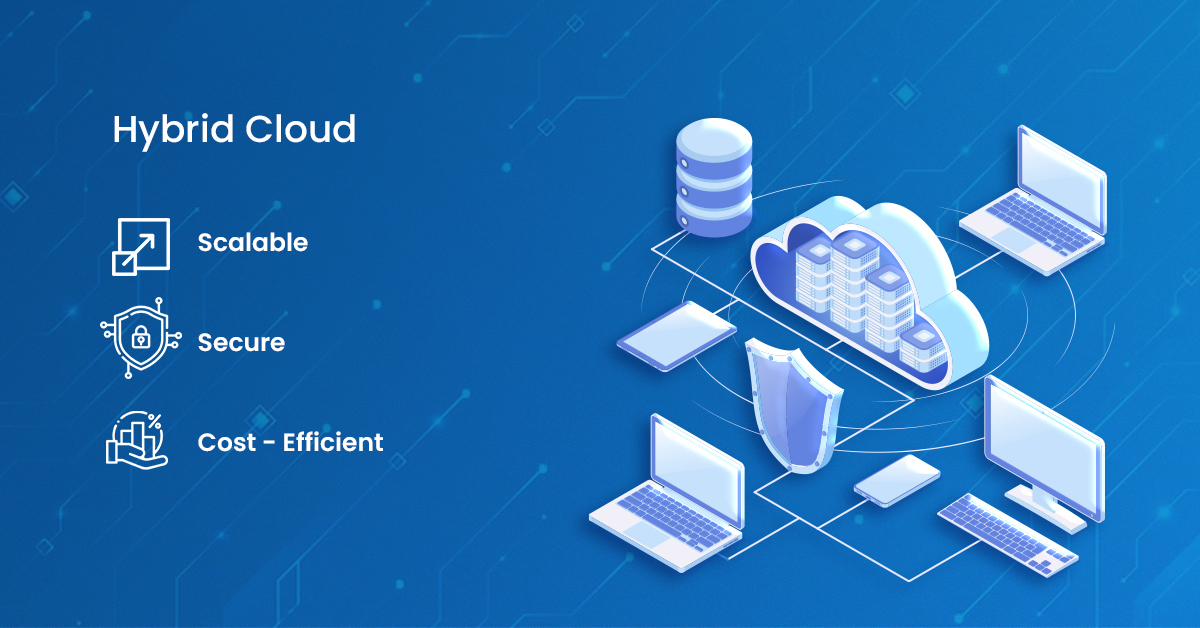How Hybrid Infrastructure Optimizes Cost, Performance, and Security for Your Business
In today’s digital age, businesses are constantly searching for new ways to optimize their operations and stay ahead of the competition. One of the key factors in achieving this is having an infrastructure that strikes the perfect balance between cost, performance, and security. Enter hybrid infrastructure – a solution that offers the best of both worlds by combining the benefits of both public and private cloud environments. The hybrid infrastructure allows businesses to leverage the scalability and flexibility of the public cloud while also maintaining control over their sensitive data and applications in a private cloud environment. This approach offers a range of benefits, from reduced costs to enhanced security, and better overall performance. In this article, we’ll explore the advantages of hybrid infrastructure and how it can help businesses achieve their goals in today’s fast-paced digital landscape.

Understanding the Benefits of Hybrid Infrastructure
Hybrid infrastructure combines the advantages of public and private clouds into a single, integrated solution. Public clouds provide businesses with virtually limitless scalability and flexibility. However, they are also susceptible to security breaches, and businesses may not have complete control over their data and applications. On the other hand, private clouds offer businesses greater control over their data and applications, as well as enhanced security. However, they may not be as scalable or flexible as public clouds.
Hybrid infrastructure offers the best of both worlds. Businesses can use public clouds for non-sensitive data and applications that require high scalability and flexibility while keeping sensitive data and applications in a private cloud environment. This approach offers a range of benefits, including cost savings, better performance, and enhanced security.

Hybrid Infrastructure Statistics
The growth of hybrid infrastructure is a testament to its effectiveness. According to a report by MarketsandMarkets, the hybrid cloud market is expected to grow from $44.6 billion in 2018 to $97.6 billion by 2023, at a compound annual growth rate (CAGR) of 17.0% during the forecast period. The report also states that the most significant factor driving the growth of the hybrid cloud market is the need for businesses to reduce operational costs while maintaining control over their sensitive data and applications.
Another study by RightScale found that 84% of enterprises have a multi-cloud strategy, with 58% of them using a hybrid cloud approach. The study also found that 91% of enterprises use public cloud, while 72% use private cloud.
Cost Optimization Through Hybrid Infrastructure
One of the most significant benefits of hybrid infrastructure is cost savings. Public clouds are generally less expensive than private clouds, as they offer a pay-as-you-go model that allows businesses to pay only for what they use. Private clouds, on the other hand, require a significant upfront investment in hardware and software, as well as ongoing maintenance costs.
By using a hybrid infrastructure approach, businesses can use public clouds for non-sensitive data and applications, which can significantly reduce costs. They can also use private clouds for sensitive data and applications, which may require additional security measures, such as encryption or access controls.
Performance Optimization Through Hybrid Infrastructure
Another important benefits of Hybrid infrastructure is that it also help businesses optimize performance. Public clouds offer greater scalability and flexibility than private clouds, which can help businesses handle sudden surges in demand. On the other hand, private clouds offer greater control over resources, which can help businesses improve performance for critical applications.
By using a hybrid infrastructure approach, businesses can use public clouds for non-sensitive data and applications that require high scalability and flexibility, while keeping sensitive data and applications in a private cloud environment. This can help businesses optimize performance by using the right environment for the right workload.

Security Optimization Through Hybrid Infrastructure
Hybrid infrastructure can also help businesses enhance security. Public clouds are susceptible to security breaches, as businesses may not have complete control over their data and applications. Private clouds offer greater control over resources, which can help businesses improve security for critical applications.
By using a hybrid infrastructure approach, businesses can use private clouds for sensitive data and applications that require additional security measures, such as encryption or access controls. They can also use public clouds for non-sensitive data and applications that do not require the same level of security.
Creating Your Hybrid Infrastructure Plan
Creating a hybrid infrastructure plan requires careful consideration of your business needs and goals. You will need to assess your current infrastructure and determine which data and applications can be moved to the public cloud and which should remain in the private cloud. You will also need to consider security and compliance requirements, as well as performance and cost considerations.
Once you have created your hybrid infrastructure plan, you will need to choose the right cloud provider for your needs. You will also need to ensure that your infrastructure is properly configured and optimized for your business needs.
Tips for Implementing Hybrid Infrastructure
Implementing hybrid infrastructure can be a complex process, but there are several tips that can help businesses ensure a successful implementation. These include:
- Start small: Begin with a pilot project to test the infrastructure and ensure that it meets your business needs.
- Choose the right cloud provider: Select a cloud provider that offers the right combination of security, performance, and cost for your business needs.
- Configure your infrastructure properly: Ensure that your infrastructure is properly configured and optimized for your business needs.
- Train your employees: Provide training to your employees to ensure that they understand how to use the new infrastructure effectively.
- Monitor your infrastructure: Monitor your infrastructure regularly to ensure that it is performing as expected and that any issues are addressed promptly.
Best Practices for Managing Hybrid Infrastructure
Managing hybrid infrastructure requires ongoing maintenance and optimization to ensure that it continues to meet your business needs. Some best practices for managing hybrid infrastructure include:
- Regularly assess your infrastructure: Assess your infrastructure regularly to ensure that it continues to meet your business needs.
- Optimize your infrastructure: Continuously optimize your infrastructure to ensure that it is performing at peak efficiency.
- Ensure security: Continuously monitor and update security measures to ensure that your data and applications are protected.
- Plan for future growth: Plan for future growth by ensuring that your infrastructure is scalable and can handle increased demand.
Conclusion: Why Hybrid Infrastructure is the Future of Business Operations
Hybrid infrastructure offers businesses a range of benefits, from cost savings to enhanced security, and better overall performance. By combining the advantages of public and private clouds into a single, integrated solution, businesses can optimize their infrastructure to meet their specific needs and goals. As the digital landscape continues to evolve, hybrid infrastructure will become increasingly important for businesses looking to stay ahead of the competition. By embracing hybrid infrastructure, businesses can strike the perfect balance between cost, performance, and security, and achieve their goals in today’s fast-paced digital landscape.
We at ESDS provide hybrid cloud solutions, which address business challenges and provide the benefits of the sole vertically auto-scalable public cloud platform optimized for availability, security, performance, and cost, along with the extra security of a private cloud. By partnering with us, you have the option to combine your current cloud solution with our hybrid cloud hosting service.
- Top 5 Data Center Trends for 2024 - October 11, 2023
- Top 15 Cloud Computing Trends 2024 - October 4, 2023
- What is Infrastructure Monitoring and Why Infrastructure Monitoring Tool is Important for Your Business? - September 20, 2023
